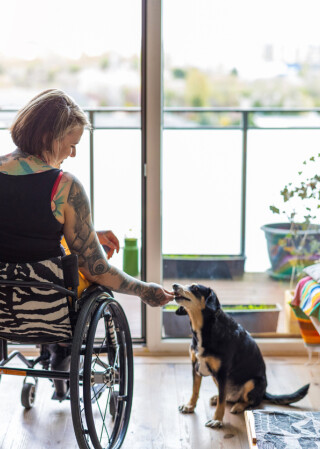
Special Disability Trusts
A Will allows a person to gift their Estate how they wish when they pass away. Where you have a loved one with a disability that will benefit from your Estate, the considerations are often even greater. The focus in this case is often to protect the disability pension or any NDIS funding to ensure the beneficiary has access to all their support needs and care when you pass away. A “Special Disability Trust” in a Will is specifically designed to assist with this. This is explored further below.
What is a Special Disability Trust
A Special Disability Trust (“SDT”) is a trust established by a Will or Trust Deed solely for the future care and accommodation needs of a person with a severe disability.
The purpose of a SDT is to ensure that the beneficiary’s assets are protected and the beneficiary can continue to receive the Disability Support Pension (“DSP”) and the benefits associated with receiving the DSP.
Eligibility
Beneficiary
To be eligible as a beneficiary of a SDT, the beneficiary must meet the definition of “severe disability”. The definition defines “severe disability” as follows:
- a person over the age of 16
- whose level of impairment qualifies them for the DSP; and
- who has a disability that would, if the person had a sole carer, qualify the carer for a carer payment or carer allowance.
Before creating a SDT it is important to speak with Centrelink regarding the beneficiary to ascertain whether they meet the requirements.
Purpose of SDT
The SDT must be established for the primary purpose of providing ‘reasonable care’ and ‘reasonable accommodation’ for the beneficiary. The main examples of reasonable care are things such as:
- specialised foods
- mobility aids
- sleeping and sensory aids
- personal care aids
- communication devices
- modifying vehicles
- transport
- training for transitional or independent living skills
- daily care fees (charged by an approved provider)
- medical related and dental costs
The SDT cannot be used to pay immediate family members for providing any type of care, accommodation or maintenance services.
A ‘reasonable accommodation need’ arises from the need to pay for property (whether purchasing or renting) and the property that has been acquired or rented is NOT acquired or rented from an immediate family member.
An immediate family member includes parents (step and adoptive), legal guardians, grandparents and brothers and sisters (including adoptive, half and step).
The main examples of reasonable accommodation are as follows:
- Modification to the beneficiary’s home.
- Payment for the purchase of the beneficiary’s home (provided the payment is not made to an immediate family member).
- Payment of rent (provided the payment is not made to an immediate family member).
- Payment of accommodation bond.
- Maintenance (not replacement without evidence) of the trust property
Discretionary Spending
The SDT can also undertake a level of discretionary spending that is not directly related to care and accommodation needs. The level of discretionary spending is indexed annually and is currently $14,000.00 (2023-2024 financial year).
Discretionary spending includes:
- Toiletries
- Vehicle maintenance (including rego/insurance/petrol)
- Recreation and leisure activities
- Payment of utilities
- Household cleaning services
- Communication devices
- Life skills and social inclusion workshops.
If you have a loved one with a disability and are looking for advice to protect the pension for that beneficiary upon your passing, please call Krystle Wolthers, Partner of the Estate Planning Department on 02 4626 5077 to discuss further.
The contents of this publication are for reference purposes only. This publication does not constitute legal advice and should not be relied upon as legal advice. Specific legal advice should always be sought separately before taking any action based on this publication.
Want to hear more from us?
Subscribe to our mailing list

